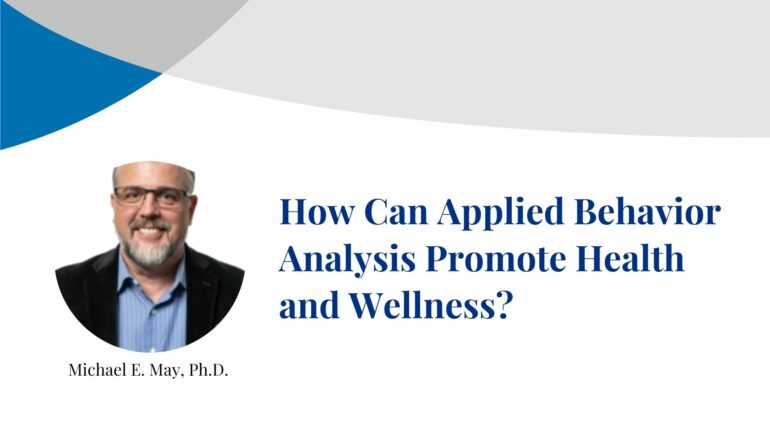Applied Behavior Analysis (ABA) promotes positive behavior change across various settings. Although traditionally associated with addressing behavioral challenges in individuals with autism spectrum disorders, application of these behavioral principles has extended beyond clinical settings. Integrating behavior analysis into public health sectors presents a promising avenue for enhancing preventive measures, health promotion, and overall well-being.
In the realm of public health, behavior-analytic principles can be applied to address a wide array of behavioral issues, from encouraging healthy lifestyle choices to managing chronic conditions. One key aspect is the emphasis on evidence-based practices. ABA relies on empirical evidence to inform interventions, ensuring that strategies are tailored to the specific needs of the target population. This evidence-based approach aligns seamlessly with the goals of public health initiatives, where the effectiveness of interventions is crucial for achieving positive outcomes.
For instance, interventions grounded in ABA principles can be implemented to promote physical activity, healthy eating habits, and adherence to preventive health care practices. By identifying antecedents and consequences associated with health-related behaviors, ABA allows for the development of targeted interventions that effectively shape and reinforce positive habits.
One notable application of ABA in public health is the management of chronic conditions. Many health-related issues, such as diabetes or cardiovascular diseases, involve complex behavioral components. ABA provides a systematic approach to understanding and modifying these behaviors. Through functional assessments and behavior modification techniques, ABA can help individuals adhere to medication regimens, adopt healthier dietary habits, and engage in regular physical activity, all crucial elements in managing chronic conditions and preventing complications.
Furthermore, ABA’s focus on individualized interventions aligns with the personalized approach increasingly emphasized in modern health care. Tailoring interventions to the unique needs and preferences of individuals enhances their effectiveness. In the public health sector, this means recognizing the diversity within communities and designing interventions that resonate with different demographic groups. ABA’s commitment to individualization ensures that public health initiatives are not one-size-fits-all but rather responsive to the specific needs and contexts of diverse populations.
One aspect of ABA that makes it particularly valuable in public health is its emphasis on behavior as a dynamic and adaptable entity. Public health challenges often involve navigating complex systems influenced by social, economic, and environmental factors. ABA acknowledges the dynamic interplay of these variables and focuses on modifying behavior within the context of these broader influences. This holistic perspective is crucial for addressing the multifaceted nature of public health issues and creating sustainable, long-term behavior change.
While integrating ABA into public health sectors holds great promise, challenges must be considered. One challenge is the need for interdisciplinary collaboration. Successful integration requires communication and collaboration among professionals from diverse fields, including behavior analysis, public health, and policy development. Building bridges between these disciplines is essential for creating comprehensive and effective interventions that address both behavioral and environmental factors.
Additionally, ethical considerations must be paramount in the integration of ABA into public health. Respecting autonomy, cultural sensitivity, and ensuring the well-being of individuals are fundamental principles that should guide the implementation of ABA-based interventions. Striking a balance between achieving positive behavior change and upholding ethical standards is crucial for the success and sustainability of integrated efforts.
In summary, the integration of Applied Behavior Analysis into public health sectors represents a significant opportunity to enhance the effectiveness of interventions aimed at promoting health and preventing disease. By leveraging ABA principles, public health initiatives can become more evidence-based, individualized, and adaptable to the complex and dynamic nature of behavioral influences. While challenges exist, the potential benefits in terms of improved health outcomes and the well-being of communities make the integration of ABA into public health a worthwhile endeavor.
The Chicago School offers Behavioral Sciences programs, including a Master’s in Applied Behavior Analysis and a Ph.D. Behavior Analysis. Both ABA programs are offered at multiple campuses as well as an online modality. Learn more about our ABA programs today.

